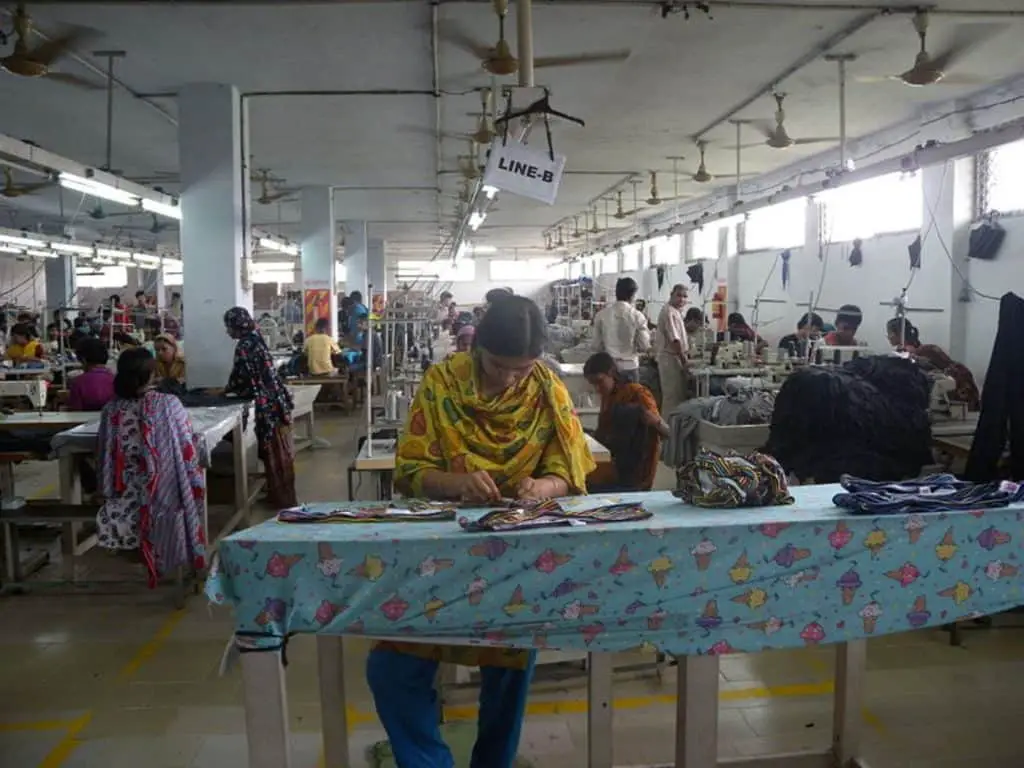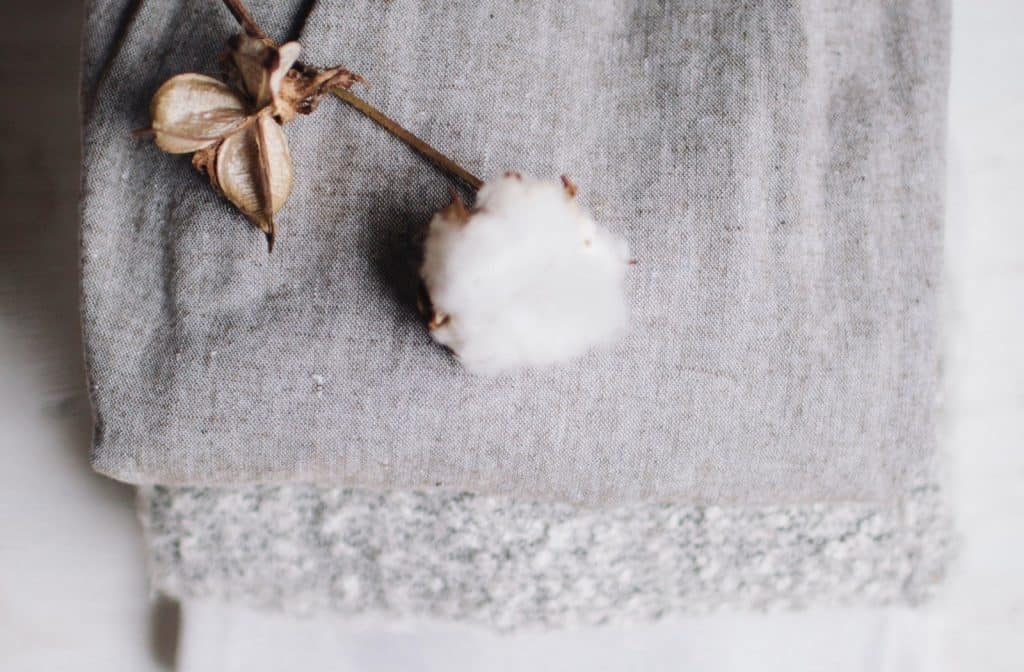In recent years bamboo has gained a lot of noise due to its antibacterial properties, its softness, and of course, the small environmental impact it supposedly has on our planet. But is it true what the media is telling us, is bamboo fabric sustainable?
The Zerowasteman took a closer look and here is what he found:
The many benefits of bamboo.
Ok, so you are in the market for some new clothes, and you heard that buying cotton is not a very sustainable option, so you look elsewhere. You heard that bamboo is a good alternative, and it is great for clothing because bamboo fabric is:
- breathable
- thermal regulating
- wicks moisture better than polyester performance fabrics
- will resist odor
- is absorbent
- fast drying
- more comfortable than any cotton or polyester fabrics
However, there is one problem in making bamboo, which we dig into a little further in this article. If you want to skip it all and buy a new pair of undies that are sustainable and comfortable, we suggest.
Some facts about the sustainability of bamboo are:
- It is grown without pesticides or chemical fertilizers
- It requires no irrigation
- It rarely needs replanting
- It grows rapidly and can be harvested in 3-5 years
- It produces 35% more oxygen than an equivalent stand of trees
- It sequesters carbon dioxide and is carbon neutral
- It is a critical element in the balance of oxygen and carbon dioxide in the atmosphere
- It is an excellent soil erosion inhibitor
- It grows in a wide range of environments
- Its production into fibers has a lower environmental impact than other forms of fiber, especially synthetic ones.[1]
Doesn’t that sound like the perfect plant to turn into sustainable fabric? So what is all the big hype about? I was always under the impression that bamboo is a sustainable fabric.
However, I bought some bamboo undies a while back, thinking, if it is bamboo, it has got to be good, right?
I mean, that stuff grows like crazy. Did you know that the fastest-growing bamboo grows 91 cm in 24 hours?

But then I was thinking, how the heck do you turn a huge grass into some of the most comfortable undies of mankind?
So the question here, is it actually a sustainable process to turn bamboo plants into bamboo pants? Let’s see.
How is bamboo cloth made?
Ok, we know that bamboo grows fast and even regrows after harvest. Most of the plantations don’t need to use pesticides. But there is no guaranty as to why they wouldn’t. In some cases, it might boost production.
While growing the bamboo plant is mostly eco-friendly, turning it into fabric can be a bit different.

There are two ways to do that.
- It is by combing out the fibers and spinning these into threads, which is then called bamboo linen. This is labor-intensive and doesn’t resolve into the soft bamboo you and I want our bums to touch.
- The more commonly used process is in a bath of chemicals that separates the fiber from the pulp. It uses a similar method to turn wood chips into rayon. Rayon can be used to create with many fibers, and one of them is bamboo. The chemicals used in this process are highly toxic and a risk to human health.
- Bamboo Lyocell is made with pure organic bamboo pulp; it is crushed, washed, and spun into yarns. Traditional lyocell is made from wood, but bamboo lyocell is a renewable plant source. Bamboo lyocell, also is known as Tencel, is silky, smooth, and very soft, but it isn’t silk.
Due to the extensive use of chemicals, bamboo loses its properties of being antibacterial and UV resistant.
Are we being lied to? I was totally under the impression that when I buy bamboo, it has these fantastic properties, and most of the companies use that in their marketing strategy. Does that mean they have no actual claims on this?
Is bamboo fabric sustainable or not?
Well, like with so many things there is no clear answer to this question.

So what is a better alternative?
- Organic cotton is grown without harmful chemicals and is considered environmentally sustainable.
- Linen is a durable, hypoallergenic material that becomes softer and stronger, the more it’s used.
- SeaCell fibers, dried seaweed is ground, crushed, and mixed with cellulose.
- Lyocell is manufactured from wood pulp in an environmentally friendly closed-loop process.
- Modal is a variety of rayon fabric made exclusively from the renewable fiber of the beech tree.
- Hemp grows well without the use of pesticides or chemical fertilizers, making it ideal for organic farming.
- Soya fabric, also known as “vegetable cashmere,” is an eco-friendly, petrochemical-free material made from a soya-bean processing by-product.
- rPET stands for recycled polyethylene terephthalate.*
Those are some examples of alternatives to the bamboo fabric, which all impact just some more than others. I guess it’s up to you to choose your battle.
One of my favorite underwear is the one from wama. It’s made from hemp and feels fantastic on your skin. Give it a try here.
Which bamboo fabric is sustainable, and which one can I buy without regret?
Suppose the clothing is correctly labeled, which isn’t always the case. But let’s say it is, and it says bamboo fiber, you can go ahead and make that purchase without feeling too guilty about it.
If the label says Bamboo Rayon or Viscose the answer isn’t so clear.
According to GoodOnYou, it is almost better to buy organic cotton or hemp as an alternative, even though that requires a lot more water to grow. There are fewer chemicals used than in rayon.
Is bamboo fiber biodegradable?
Technically speaking, yes, bamboo is biodegradable. If it ends up in compost or can mix with bacteria, sunlight and rain, then it will biodegrade in a matter of months, just like the plant does.
However, all too often, our clothes are being shipped and packed tightly to third world countries for them to deal with the waste. Yes, sadly, even if we bring our used clothes to the recycling drop off stations. Only about 0.1% of recycled fiber collected by charities and take-back programs is recycled into new textile fiber [2]
Why is bamboo better than plastic?
I feel strange even putting this question in this article, but according to my research, people sincerely ask. Excuse my sarcasm in these words. If you are unaware of the damages that plastic is causing to our environment, please read these articles.
related:
How plastic ruined my morning coffee?

Thank you so much for publishing this post! I read something about this on Earth Hero and I have cringed every time I’ve seen an article where someone was praising bamboo as a sustainable choice. I really need to read more about the difference between Tencel and Lyocell though, because I think I may have the two confused.
Your welcome, Sue; that is a good idea for another article. Thank you.